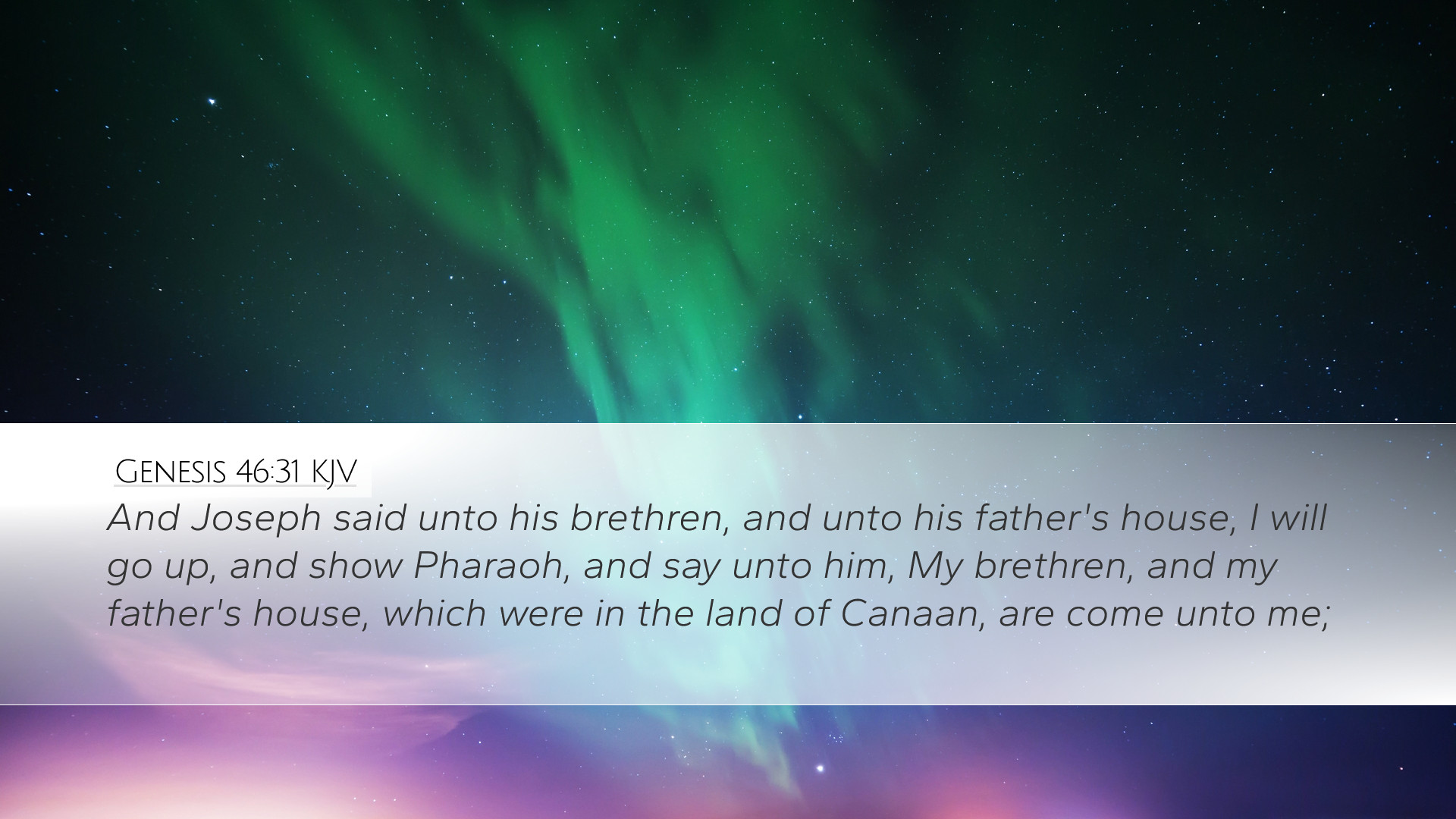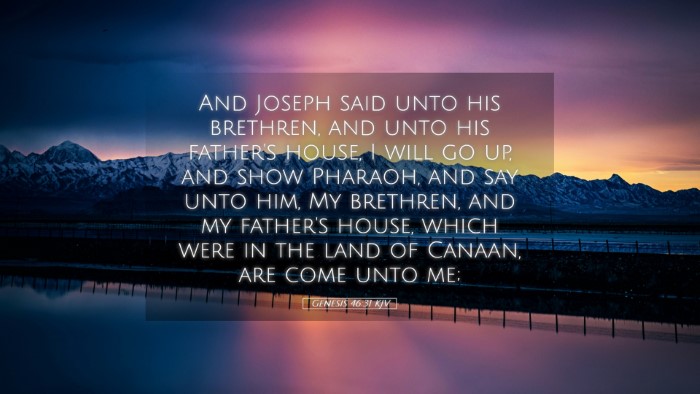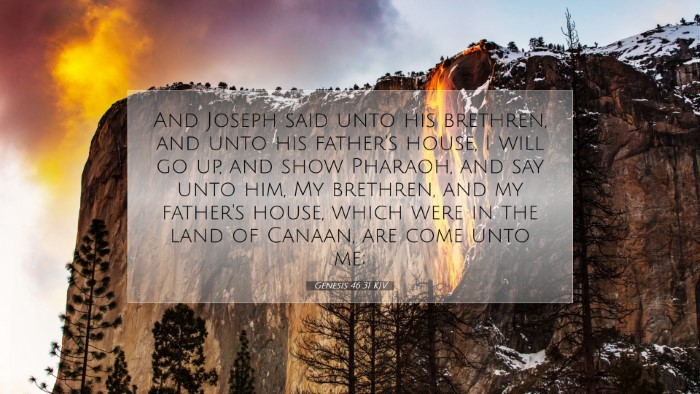Commentary on Genesis 46:31
Bible Verse: "And Joseph said unto his brethren, and unto his father’s house, I will go up, and show Pharaoh, and say unto him, My brethren, and my father’s house, which were in the land of Canaan, are come unto me."
Overview
This verse denotes a significant moment in the narrative of Joseph and his family as they reunite after years of separation due to famine and the previous conflict of Joseph's brothers selling him into slavery. Genesis 46:31 encapsulates Joseph's intent to reveal his family's presence to Pharaoh and marks the transition into the next phase of God's unfolding plan for Israel.
Contextual Background
To appreciate the depth of this verse, it is essential to consider the context. Joseph, having risen to second in command in Egypt, is in a unique position to provide for his family's needs. The journey of the Israelites from Canaan to Egypt symbolizes the movement of God's chosen people into a land of provision but also sets up the backdrop for their future trials and the eventual Exodus.
Commentary Insights
Joseph's Address to Pharaoh
Joseph's words reflect a reverent approach to authority. Matthew Henry notes that Joseph's eagerness to introduce his family to Pharaoh demonstrates both respect for the Egyptian ruler and a sense of responsibility for his kin. Joseph, aware of the providence at work in his life, took active steps to secure the future of his family (Henry).
The Significance of the Family
Barnes emphasizes the importance of family unity in this narrative. Mentioning his "brethren" and "father’s house," Joseph acknowledges his roots and the importance of familial connections. This serves as a reminder of the value God places on families, particularly in how they serve His purpose (Barnes).
God's Plan Unfolding
According to Adam Clarke, this passage illustrates God's sovereignty. The reunion represents the fulfillment of Joseph’s dreams and the promise of God to Abraham regarding his descendants. Joseph's actions here can be seen as part of the larger divine plan to build a nation from his lineage (Clarke).
Theological Implications
Understanding Genesis 46:31 provides vital theological insights for pastors and theologians. The passage raises questions about divine providence, human agency, and the interconnectedness of God's plans across generations.
- Divine Providence: The journey into Egypt marks an essential moment where God orchestrates events for the sake of the covenant with Abraham. The event confirms God's role as a guiding force in the lives of His people.
- Human Agency: Joseph exemplifies how individuals can cooperate with God's plan through their choices. His willingness to act reflects both his leadership and his faithfulness to God’s calling.
- Familial Responsibility: The emphasis on family suggests that God works through familial relationships and that leaders have a duty to care for those entrusted to them.
Practical Applications
This verse has several practical applications for contemporary readers, offering insights that resonate with modern ecclesial communities.
- Encouragement in Family Dynamics: For families in the church, it serves as a reminder of the importance of maintaining unity and support among members, especially during challenging times.
- Leadership: For leaders, Joseph’s approach teaches the value of being a responsible steward of both one’s family and those one leads.
- Reliance on God: This reminder of God’s overarching plan can encourage believers to trust in divine guidance, reassured that their life paths are part of a greater narrative.
Conclusion
Genesis 46:31 acts as a pivotal statement that not only signifies a personal reunion but also represents larger themes such as divine providence, human responsibility, and the interconnectedness of family within God's plan. This passage invites reflection on how believers today might navigate their roles within their families and communities while being mindful of God's sovereign will.


